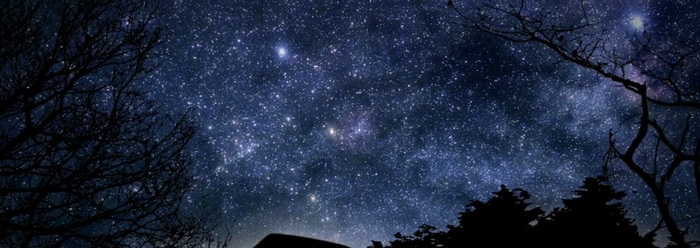"Remember now thy Creator in the days of thy youth, while the evil
days come not, nor the years draw nigh, when thou shalt say,
I have no pleasure in them." (Ecclesiasties 12:1)
Over the summer months no lack of energy hampered the growth of materials into a building. In addition to the sun's energy, there was an occasional thunderstorm and a frequent wind. Conditions could hardly have been better, one would think.
But alas, soon the concrete hardened still in the sacks, the boards warped, dry wall cracked, and nails rusted. Even the precocious sign faded. All the materials were still there with plenty of energy, but only disorder resulted. What went wrong?
What's wrong is the evolutionist fairy tale. Abundant energy acting on an open system are necessary conditions, but they are not sufficient. More is needed.
For biological systems to grow, there must be some mechanism to take the incoming energy and transform it into useful forms. For plants this includes photosynthesis, for animals, digestion. These abilities are present in even the least complicated life forms, and without them energy would be deadly. Energy itself could not create such systems; they must be present at the start.
Likewise, a blueprint for growth must be present to direct the converted energy into useful work. This is the amazing DNA code—an encyclopedia of precise information that the rest of the cell can read and obey. No raw energy could write this book on its own, but it must be present or else energy will be of no help.
The time has come for evolutionists to drop their weary claim that the sun's raw energy is all that is necessary to produce order from disorder. Solar energy can't even produce a simple solar-powered home, and it certainly can't produce complex life.
There was a great flurry of interest in constructing energy-efficient buildings during my tenure on the University of Oklahoma faculty. On my way to work each day I passed a huge sign proclaiming that a completely solar-powered house was to be built on that site. I noted with great interest as deliveries of brick and lumber and nails began to accumulate. Sacks of concrete and stacks of dry wall were piled near the staked-out location. I waited with great anticipation for the final project.
I never learned the reason, but work never started. Perhaps there were financial or legal problems, but the workmen and their equipment never arrived as expected. No contractor showed up with his blueprints. But not to worry—all the raw materials were there, bathing daily in abundant Oklahoma sunshine—because remember, this was to be a solar-powered home.
Evolutionists have taught for decades that the second law of thermodynamics—the entropy principle that things naturally decrease in complexity rather than increase—poses no barrier to evolution. Their claim is that while there is an overall downhill trend in nature, uphill innovations can occur locally in a system if abundant energy is available. Specifically the sun's energy provides all that is necessary to transform inorganic chemicals into a living cell and eventually into people. All that is necessary is an open system and abundant energy, especially the sun's energy. If complicated living organisms can be created in this way, certainly something not nearly so complicated as a house could be produced. Especially a solar-powered house!




















